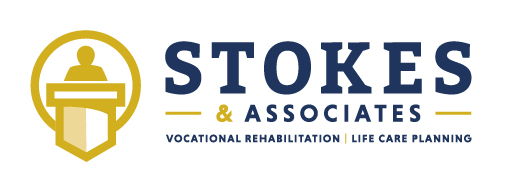Medication and Work
After an injury and a medical release for work, individuals may continue to take prescription medicines such as muscle relaxers, anti-inflammatories, and pain medications. As vocational experts, we get asked “how” these medications may affect a person’s ability to obtain or maintain employment.
A vocational expert is not a medical expert and must rely on treating or consulting physicians to determine what limitations/side effects, if any, can be expected as a result of medication use. It is the vocational expert’s purview to assess job functions and employment requirements. If a physician limits a person from certain activities because of the side effects of medication, then the vocational expert can determine what jobs can or cannot be performed with or without accommodation.
There are instances when the physician does not specify limitations regarding the medicines and work. The vocational expert could assume that if prescribed narcotics produce sedating effects, it may be unsafe for the individual to operate a vehicle, heavy equipment, or dangerous machinery, and should avoid work at unprotected heights. As responses to medications vary, it cannot be assumed that all individuals are unemployable in any capacity.
Questions to clarify work suitability while taking medication include what effect, if any, do these medications have on this specific individual (e.g., drowsiness, etc.)? What type of job is the person performing or seeking (e.g., assembler, carpenter, etc.)? How often is medication being taken, and can it be taken after work hours? Do certain occupations or professions have legal or statutory restrictions regarding narcotics or related medication use (e.g., registered nurse, crane operator, commercial truck driver, etc.)?
For example, we performed a labor market survey for an individual taking pain medication who was released to work by his physician in a light capacity. Potential employers were contacted based on jobs that were within his physical restrictions and educational experience, including sales clerk, parts clerk, and office assistant. We asked employers whether the use of prescription pain medication would affect his potential hire/employment. Of the four employers contacted with suitable job openings, all reported that this individual would not be precluded from employment consideration because of prescription medication usage if the medication was disclosed upon pre-employment drug screening.
Medication effects vary regarding the impacted functions in jobs available in the labor market. Some medications come with warnings; however, these warnings do not neatly translate to job limitations but are merely cautions. The bottom line is, if a person is taking medication that hinders their ability to perform a job, then the position is not suitable for the worker. If, however, the person taking medication is not negatively affected by the drug, regardless of the cautions and the physician does not restrict the worker, then medication status is not a disabling condition. If there is no danger or risk, then medication is not the objection.
We offer complimentary consultations concerning "hypothetical matters." To strategize with one of our life care plan experts or vocational experts at Stokes & Associates, please call David Barrett at 504-454-5009 or email dbarrett@stokesassociates.com.
Larry S. Stokes, Ph.D.
Aaron Wolfson, Ph.D.
Lacy Sapp, Ph.D.
Todd Capielano, M.Ed., LRC, CRC, LPC, CLC
Ashley Lastrapes, MHS, CRC, CCM, CLCP, LPC, LRC
